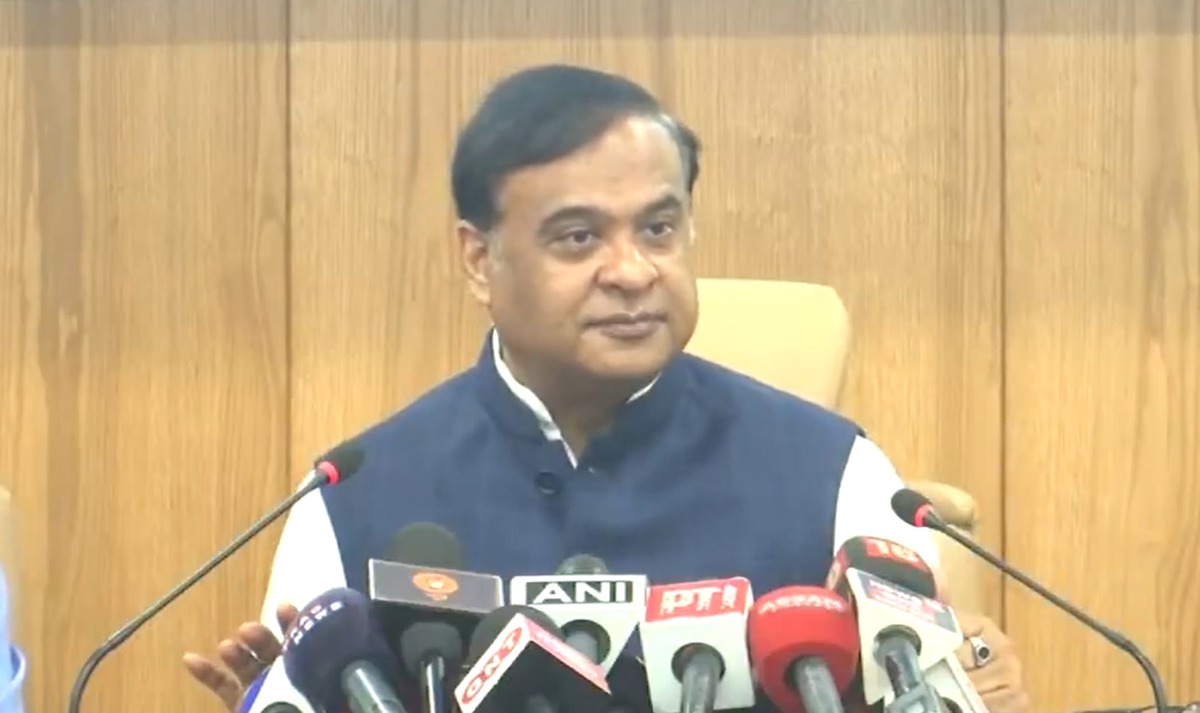In a major announcement ahead of the panchayat elections in Assam, Chief Minister Himanta Biswa Sarma recently declared that the state government would withdraw all pending cases in the Foreigners’ Tribunals against members of the Koch Rajbongshi community. Speaking at a press conference on April 4, Sarma claimed, “There are 28,000 cases pending in different Foreigners’ Tribunals in the state against individuals of the community. The cabinet has made a historic decision of revoking the cases with immediate effect.”
The announcement comes at a politically significant time—during the ongoing nomination process for the panchayat elections. This has prompted concerns about whether this declaration is a genuine policy measure or merely a tactical “lollipop” to secure the Koch Rajbongshi vote bank before the polls. Especially because there are no ethnic or other specific “markers” for the Koch Rajbongshi tribes that can demographically mark them out as is being claimed.
How can the State identify Koch Rajbongshi individuals in Tribunal cases?
A critical question arising from this announcement is the feasibility of identifying who belongs to the Koch Rajbongshi community from among those facing cases in the Foreigners’ Tribunals. According to several legal aid activists and activists working on the citizenship issue before Assam’s foreigners’ tribunals (FTs), the case records typically do not mention community identities explicitly. In fact, most proceedings mention the mother tongue of the accused as Bengali. Moreover, common surnames such as Roy, Barman, and Sarkar—used widely by both Koch Rajbongshis and Bengali Hindus—further blur community lines.
Given this lack of community-specific data in case records, it remains unclear how the state arrived at the figure of 28,000 Koch Rajbongshi individuals facing cases. There is no legal or administrative categorisation in the Foreigners’ Tribunal system that identifies a person’s ethnicity or tribe or caste, raising serious doubts about the authenticity of this figure.
Ongoing cases raise doubts about implementation
Despite the CM’s assurance that the cases would be revoked immediately, on-ground developments suggest otherwise. It is essential to note that merely two days after the announcement, a person named Kishor Barman—belonging to the Koch Rajbongshi community—was heard in a case at the Kajalgaon Foreigners’ Tribunal. The case is currently being fought by the Assam legal team of Citizens for Justice and Peace (CJP), and his next hearing is scheduled for April 11, 2025.
If the state truly intends to withdraw all cases against Koch Rajbongshis, why are tribunal proceedings still ongoing for community members like Barman? This discrepancy further undermines the credibility of the Chief Minister’s statement.
Previous announcements and inconsistencies
As provided by local experts, this is not the first time such an announcement has been made. On August 4, 2021, CM Sarma had similarly declared that no new cases would be registered against members of the Gorkha community.
You will be further happy to note that Assam cabinet took a decision today not prosecute any Gorkha citizen under the Citizenship Amendment Act 1955 and also to withdraw all pending prosecution relating to Gorkhas from foreigners tribunals https://t.co/YEYXw0raWe
— Himanta Biswa Sarma (@himantabiswa) August 4, 2021
However, this commitment also appeared hollow in practice. In 2023, Gorkha individuals reportedly had to pay fines to the Electoral Registration Officer (ERO) due to the ‘D-voter’ tag, which should not have applied to them if the 2021 decision had been fully implemented. One such case reached the Gauhati High Court, where even a retired Indian Army personnel had to defend his citizenship status.
Contradictions in the “Indigenous” narrative
Another contradiction lies in the government’s use of the term “indigenous” to justify the withdrawal of cases. While the cabinet claims the Koch Rajbongshis are indigenous to Assam, several other communities—such as the Goria, Moria, Deshi, Jolah (tea tribe), and Sayeed Muslims—have also been classified as indigenous by the same government. Yet, thousands from these communities continue to face proceedings in Foreigners’ Tribunals. If indigeneity is the criterion for revoking cases, then why are these communities excluded?
Adding to the confusion is the fact that the Assam Assembly has yet to define the term “original inhabitants” or “Khilonjia.” Without a clear legal framework or official classification, how can the Chief Minister unilaterally decide who qualifies as indigenous and who does not?
Background and political context
The Koch Rajbongshis trace their roots to the historic Kamata kingdom, which spanned parts of modern-day Assam, West Bengal, Nepal, and Bangladesh. Many members of the community migrated over time, especially during the creation of Bangladesh, from regions like Rangpur and Mymensingh. Despite their ancestral connections to Assam, they have been subjected to political and legal harassment, often being labelled as ‘foreigners.’
The demand to withdraw Foreigners’ Tribunal cases against them has been longstanding, tied closely to the community’s demand for Scheduled Tribe (ST) status—a promise first made by the BJP in the run-up to the 2014 Lok Sabha elections.
According to the Union Government’s affidavit submitted to the Supreme Court on December 11, 2023, a total of 3,34,966 cases had been disposed of by the 100 Foreigners’ Tribunals operational in Assam, and 97,714 cases remained pending as of October 31, 2023. CM Sarma’s claim that 28,000 of these pending cases belong to the Koch Rajbongshi community thus raises serious questions—especially in the absence of any demographic mechanism within the tribunals to identify community affiliation.
Conclusion: An announcement riddled with unanswered questions
While the announcement may seem historic and progressive at first glance, it is riddled with inconsistencies, practical difficulties, and electoral undertones. Without a clear mechanism to identify Koch Rajbongshi individuals in Foreigners’ Tribunal records, and with ongoing cases contradicting the promise of blanket withdrawal, the credibility of the government’s decision remains in serious doubt.
Unless the state releases a transparent, verifiable methodology explaining how it identified the 28,000 cases and issues concrete instructions to tribunals, this announcement risks being yet another political stunt dressed up as a policy reform—offering hope without substance.
Related:
SC: Only 10 deported, 33 of 63 contest foreigner status from the Matia Transit Camp, Assam

